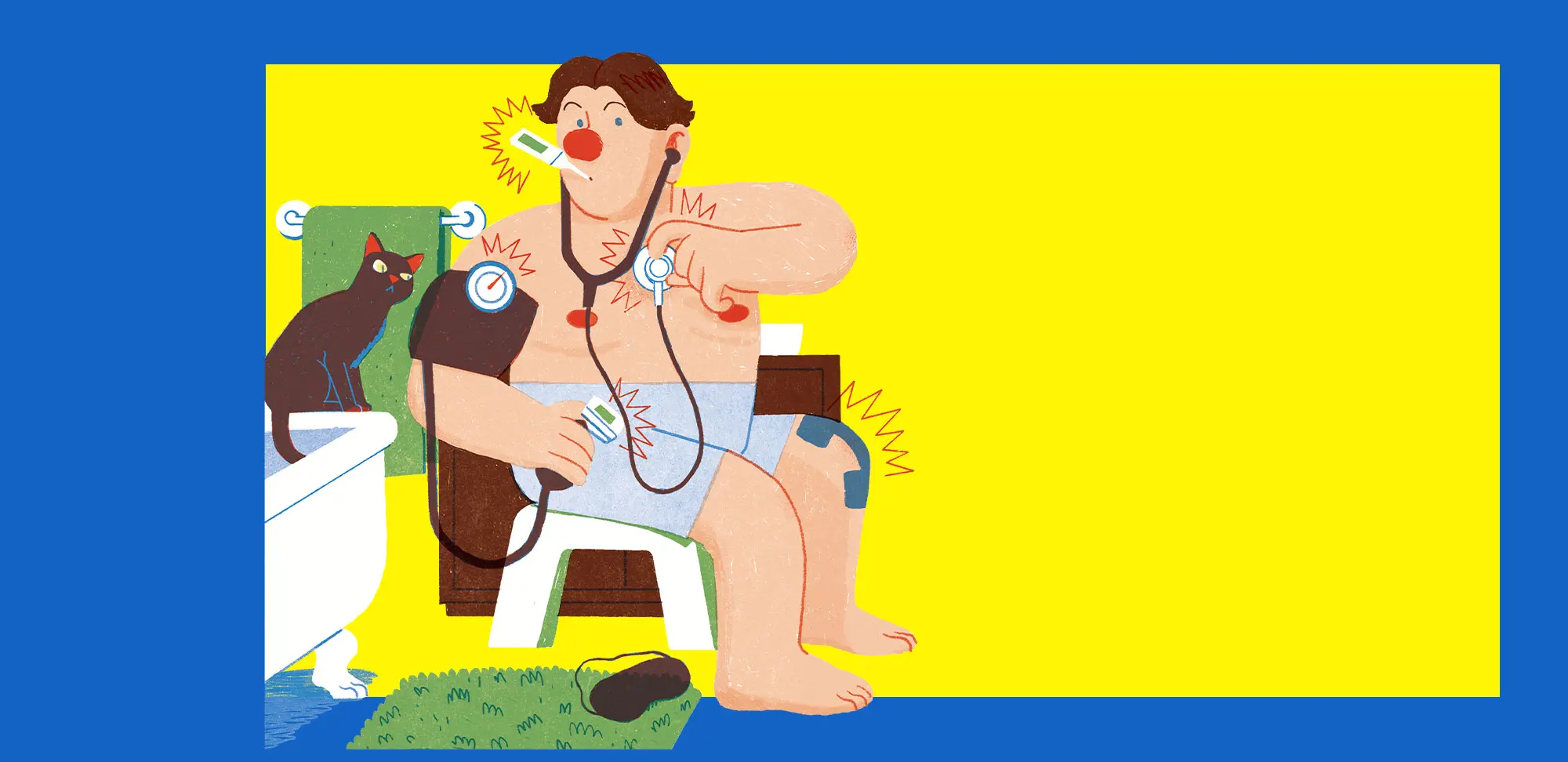“The intellect becomes a far more intelligent tool when it allows the heart to speak; when it opens itself to that within us that resonates with the truth, rather than trying to reason with it.”
— Dr. Gabor Maté in The Myth of Normal
Our bodies are miraculous. Consider the autonomic nervous system, which controls breathing, heart rate, blood pressure, sweating and food movement through our intestines. We don’t consciously manage any of that — our bodies keep us alive by design.
And so, knowing what our bodies do for us, it’s not a stretch to consider that they may have more guidance to offer if we stop and listen instead of living by numbers — counting steps, reps, calories and minutes of REM sleep . . .
Our bodies monitor our health every day, sending signals via symptoms both physical and emotional that tell us plenty if we pay attention. Listening to the signals your body sends means tuning in to those sometimes subtle emotional and physical signals and trusting those signals to help you understand more about your health and what your body needs.

Emotional cues — “I’m feeling agitated”
“We get a lot of messaging around us that causes self-doubt,” says Huda Adnan, a psychotherapist based in Pickering, Ont. “But remember, you know what is best for yourself. That messaging has gotten lost because we’re oversaturated with so much information that it’s overwhelming.”
None of us is immune to societal pressures, and tuning out external messaging so you can tune in to your body is easier said than done. Adnan finds that breathing exercises, yoga and her spiritual practice as a Muslim help her feel more grounded and create space to notice her body’s sensations.
If we tune in, she says, one lesson our body can teach us is our unconscious behaviour patterns — how we respond in certain situations. Adnan explains that we all have coping mechanisms we’ve honed over the years, and they’re not necessarily serving us well.
“We need to be willing to be vulnerable,” she says. “When you start to feel uncomfortable in your body, or triggered, perhaps in response to something your partner is saying, that’s the alarm that there’s something to deconstruct. It’s a chance for reflection. Ask yourself, ‘Why am I responding this way?’”
Adnan says the discomfort is usually sudden. It might feel like nausea, an increased heart rate or body temperature, chest tightening, tingling or sweating.

Physical cues — “My shoulder is really sore”
While Adnan is a mental health professional, she’s working toward a designation in lifestyle medicine. We can’t separate mental and physical health, she says; it’s all related. She helps her clients return to the roots of well-being by focusing on relationships, nutrition, exercise and sleep, the same areas that Mark Rocca, a chiropractor and clinical educator based in Simcoe County, Ont., suggests starting with.
“If things aren’t feeling right, look to lifestyle first,” Rocca explains. “Am I getting enough exercise, eating well and sleeping well? There’s a ripple effect if any of those three things is off. If they’re okay and you’re still not feeling well, then it’s time to get in touch with your nurse practitioner or doctor.”
Rocca says it’s important to know what’s normal for you so you can notice changes. That can include how often you typically use the washroom, how you sleep, how you feel after exercise, your appetite and any recurring aches and pains you experience.
And there are red flags to watch for — called constitutional symptoms — that are symptoms not specific to a condition but more general. “If you’re losing weight and you shouldn’t be losing weight, if you’re sweating profusely at night, or if you’re generally not feeling well, then those are signs to take more seriously and get investigated right away,” he explains.
When listening to our bodies, sometimes discomfort may stop us from exercising, but Rocca says that’s not the best approach because exercise is a pillar of health. This is where a professional like Rocca can provide guidance. “We know now, for things like arthritis, exercise is the best thing,” he explains. “You reach a phase of your life when some things are going to feel a little bit sore — and that becomes your normal — but when something starts to become painful, that’s the line when it needs to be addressed.”
It’s not uncommon to put things off or prioritize others’ care needs before our own. But our bodies offer us clues for health promotion and early diagnosis, designed to keep us feeling well. Notes Rocca, “If you be a little bit selfish and take care of yourself, you can be that much more effective for those around you.”
Treat yourself as you would a dear friend or the other people you care for. You’re worth the extra time and attention.
Common signals and symptoms

Muscle soreness vs. injury
Give things a few days. “If you’re exercising regularly, there’s soreness that’ll come with that. If it’s bothering you a week later, get it looked at,” Rocca says.

Stress management
Stress is normal, but chronic stress can be problematic. Body clues pointing to stress include irritability, muscle tension, headaches, difficulty falling asleep, constant worry and inability to focus. “If you have a little bit of elbow or knee pain, cortisol, the stress hormone, is like gas and can worsen it,” Rocca says. “The simple act of controlled, slowed breathing — closing your eyes and taking a few slow breaths through your nose — can go a long way for helping with stress management.”

Burnout vs. general stress
“When your daily functioning is affected, including being able to eat, sleeping properly, having the capacity to do your work and engage with family, that’s when it is burnout,” Adnan says. “We can start to feel in our bodies when it’s leading that way, and we need to take preventative measures because it’s tough when you’re stuck in the chronic position. You need to listen to and respect the body you’re given.”

Bowel movements
The state of your bowel movements can be a clue to digestive problems. The Bristol Stool Chart provides a way to talk about shapes and types of poop and can be a helpful tool if you need to explain your bowel movements to a health-care provider.

Loss of appetite
Not wanting to eat can be a symptom of anxiety. “Ask yourself, ‘What’s causing me to feel this level of distress that I’m unable to nourish my body?’” Adnan says. “Give yourself some grace and remind yourself that your body needs that nourishment. Start with something minimal, like a little cup of milk.”











